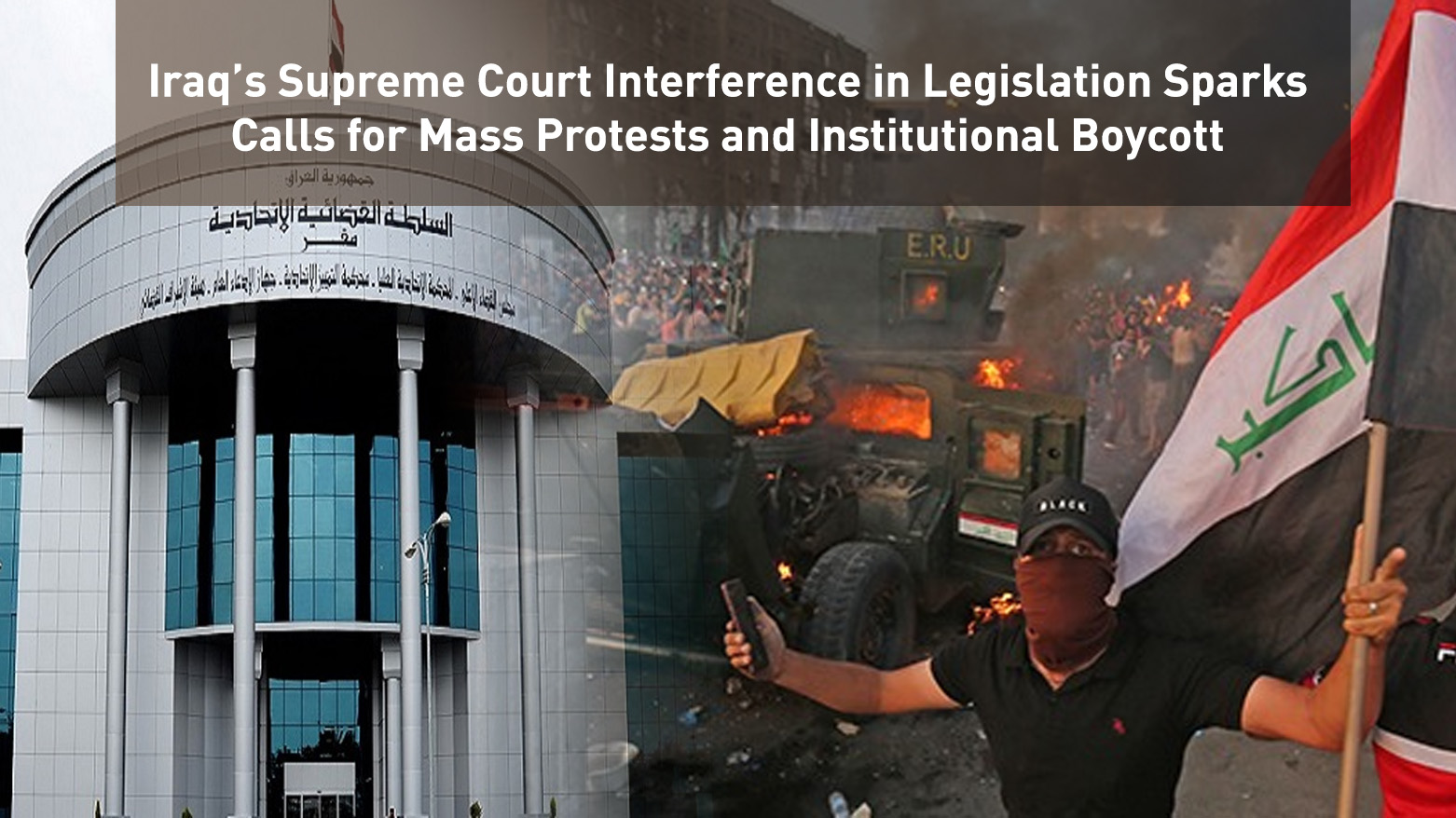Iraq’s Supreme Court Interference in Legislation Sparks Calls for Mass Protests and Institutional Boycott
As the backlash against the Federal Court's decision intensifies, the coming days are expected to witness heightened political maneuvering and mass demonstrations, further testing Iraq's fragile stability and governance structures.

Feb. 5, 2025
ERBIL (Kurdistan 24) – The Kirkuk Provincial Council Tuesday strongly criticized the Iraqi Federal Supreme Court’s decision to suspend the General Amnesty Law, describing it as "a blow to national partnership and a direct targeting of political agreements and understandings" that underpin the country’s stability.
Mohammed Ibrahim al-Hafiz, Chairman of the Kirkuk Provincial Council, issued a statement denouncing the court’s ruling, calling it "a real targeting of the political agreements and understandings that formed the Iraqi government, which established stability and achieved national accomplishments."
In response, the Kirkuk Provincial Council announced the suspension of its operations along with all associated institutions as a symbolic protest and a show of solidarity with other provinces and national leaders opposing the decision.
Nationwide Backlash and Protests
Similar reactions have been witnessed across Iraq, with Nineveh and Salahuddin governorates declaring the suspension of official work on Wednesday in protest against the court's decision. Anbar governorate escalated its response further, announcing a three-day suspension of official work to express its opposition to the ruling.
Legal Challenges to the Decision
Rebwar Hadi, head of the Legal Committee in the Iraqi Parliament, challenged the legitimacy of the Federal Court’s decision, arguing that "according to the rules of procedure, the law must be in effect for the court to be able to take a decision to suspend it." He also pointed out that the ruling is inconsistent with the nature of the court’s responsibilities and raises significant legal concerns.
On Tuesday, the Iraqi Federal Supreme Court decided to halt the implementation of multiple laws approved by the Iraqi Council of Representatives until constitutional appeals filed against them are reviewed and a final decision is made. The court justified its decision as a precautionary measure to protect legal rights pending further deliberations on the constitutionality of the challenged laws.
Among the suspended legislations is the amendment to Personal Status Law No. 188 of 1959, a law aimed at returning confiscated real estate to its rightful owners affected by decisions of Saddam Hussein’s dissolved Revolutionary Command Council, and the General Amnesty Law amendment.
Former Speaker al-Halbousi Denounces Court’s Move
In a related development, former Iraqi parliament speaker and leader of the Progress Party, Mohammed al-Halbousi, issued a strong rebuke against the Federal Court’s ruling. Taking to his official X (formerly Twitter) account, al-Halbousi condemned the decision, asserting that the amnesty law was designed "exclusively to provide justice to the innocent and oppressed, and we do not accept the emergence of terrorism that we have suffered from."
قلناها سابقاً ونؤكدها مراراً وتكراراً، إن قانون العفو الذي تم إقراره هو لإنصاف الأبرياء المظلومين حصراً، ولا نقبل بخروج الإرهاب الذي اكتوينا به قبل غيرنا وأكثر. ولكن لا نقبل أن تُسيَّس المحكمة الاتحادية (غير الدستورية) وتضرب القوانين والتشريعات عرض الحائط وتصدر أمرها الولائي…
— محمد الحلبوسي (@AlHaLboosii) February 4, 2025
He further accused the Federal Court of politicization and legal overreach, stating: "We do not accept that the unconstitutional Federal Court be politicized, that laws and legislation be disregarded, and that its unfair state order be issued against the innocent and oppressed."
Calls for Mass Protests and Institutional Boycott
Al-Halbousi vowed to resist the suspension of the General Amnesty Law "by all legal and popular means" and called for nationwide demonstrations to reject the Federal Court’s authority. "We call for massive demonstrations that shake the foundations of injustice and declare their rejection of the jurisdiction of the Jassim Aboud Al-Amiri Court over the authorities," he stated.
He concluded by urging a comprehensive boycott of institutions that do not respect the people's will and political agreements, escalating tensions between Iraq’s judiciary and political factions opposed to the ruling.
As the backlash against the Federal Court's decision intensifies, the coming days are expected to witness heightened political maneuvering and mass demonstrations, further testing Iraq's fragile stability and governance structures.